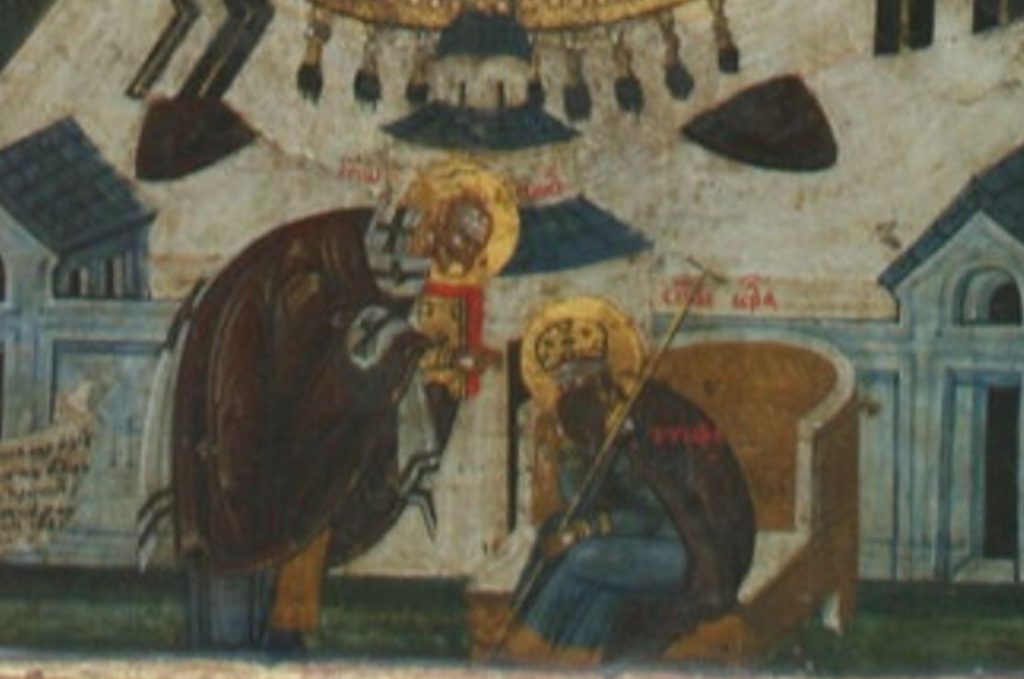If ever there was a holy king who sat on the throne of an earthly kingdom, that was the holy King Stefan of De?ani. The Greeks, who otherwise considered the Slavs barbarians, were amazed at the beauty of St. Stefan’s soul as one of the rarest wonders of the time.
When the Emperor Cantacuzene sent the abbot of the Monastery of the Pantocrator to Milutin on some official business, King Milutin inquired about his son Stefan. “O King, are you asking me about the second Job?” the abbot replied. “Be assured that his poverty stands above your royal greatness.”
For his part, the Byzantine emperor acted very cruelly toward the blind Stefan: he confined him to one area of the court and forbade everyone access to him. After that, he sent him to the Monastery of the Pantocrator, hoping that the monastery would force him into strict monastic asceticism, and that he would become weak and perish there. But God preserved the Blessed Stefan and he endured the ascetic labor of fasting and prayer like the best of monks.
They began to speak of his wisdom throughout all of Constantinople, and the emperor began to respect him and often sought advice from him. For example, St. Stefan contributed to the defeat of the infamous heresy of Barlaam, against which St. Gregory of Palamas fought.*) Barlaam then resided in Constantinople, and by skillful intrigue, had won over many high-ranking clerics and civil officials to his way of thinking. In perplexity, the emperor summoned Stefan and asked him what he should do. The wise Stefan replied with the words of the Psalmist: Do not I hate them, O Lord, that hate Thee? (Psalm 139:21), and also said: “Dangerous men must be banished from society.” Heeding this, Emperor Cantacuzene drove Barlaam from the capital with dishonor.
The Prologue from Ochrid, November 11

